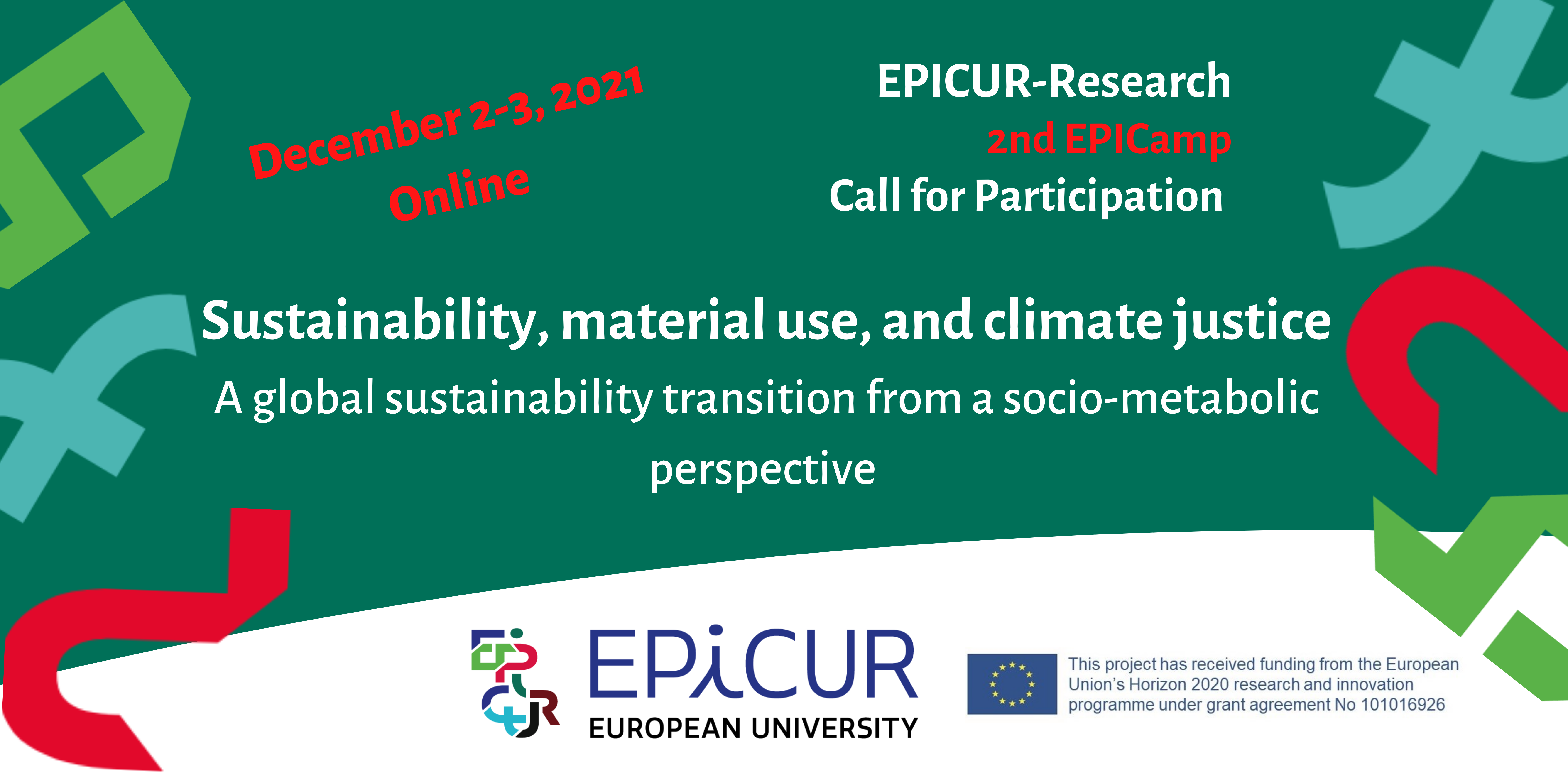
- This event has passed.
2nd EPICamp “Sustainability, material use and climate justice”
02/12/2021 @ 08:00 – 03/12/2021 @ 17:00 CET

In order to tackle the climate crisis and to enable a sustainability transformation, we need to recognize planetary boundaries and adapt our demand accordingly while considering intra- and intergenerational justice. A sustainability transition is required, away from fossil fuel use towards a circular bioeconomy, where limited resources such as land and raw materials are used carefully and in a way that intra- and intergenerational justice at multiple social and spatial scales is assured. The resulting societies, and their production and consumption patterns, are envisioned to rest on renewable resources (biomass, wind, solar, hydro, etc.) and on non-renewables (like metals or sand) that are used only in a circular manner and within planetary boundaries. But this transition entails changed resource requirements potentially resulting in new sustainability concerns regarding the expected additional pressure on land ecosystems (for biomass production as well as surface area for conservation or infrastructure etc.) which are already in competition with provisioning for agricultural, forestry, infrastructural, and settlement needs, as well as competing with challenges of biodiversity conservation and human well-being more broadly.
Questions arise not only about how such a transition can be achieved, but also which justice implications are entailed to different societal groups.
Traditionally, large scale transformation scenario modelling has paid little attention to equity and justice questions at the national and, in particular, the sub-national scale. Here, strong commitments to rapidly curb greenhouse gas emissions by transitioning to a decarbonized economy meet with local efforts to address the impacts of climate change. Consequently, climate action needs to be tackled in accordance with resource use (energy, materials, land) and socio-economic drivers accounting for regionally and internationally specific justice concerns.
List of keywords and sub-themes:
- Social metabolism as key to understand the material and energy underpinnings of sustainability
- Land-use changes within planetary boundaries that support a bioeconomy
- Climate change and climate justice: inter- and intragenerational perspectives
- Material wealth, services, sufficiency, and equity
- Ecosystem impact of human activities incl. climate change
- Energy and sustainability transitions
- Trade and teleconnections in the course of sustainability transformations
- Sustainable agriculture and forestry, incl. agroforestry
- Afforestation and Reforestation of marginal lands
- The role of agriculture and forestry combating climate change
- Supporting biodiversity conservation and ‘non-material’ human well-being in context of conflicting demands on land
Early career researchers
Potential participants of the EPICamps should have a general interest in conducting interdisciplinary research and/or working in a transdisciplinary manner with non-university partners. You should have a proven interest in the topic of the EPICamps you wish to attend. However, no previous experience in the field and/or inter-and transdisciplinary work is required.
Based on the format of the barcamp/unconference, the program of each EPICamp will look different and open up opportunities to present and discuss research and projects in mini-thesis presentations, poster sessions, panel or group discussions, etc., but also space for ad-hoc meetings, one-on-one video chats, academic speed dating sessions and methodological exchange.
Call
Please check out our Call for Participation and follow us on twitter for regular updates on upcoming EPICamps regarding European Culture, Sustainability and more. Applications are due November 15.
If you have any questions, please contact: epicur-research@mail.uni-freiburg.de








